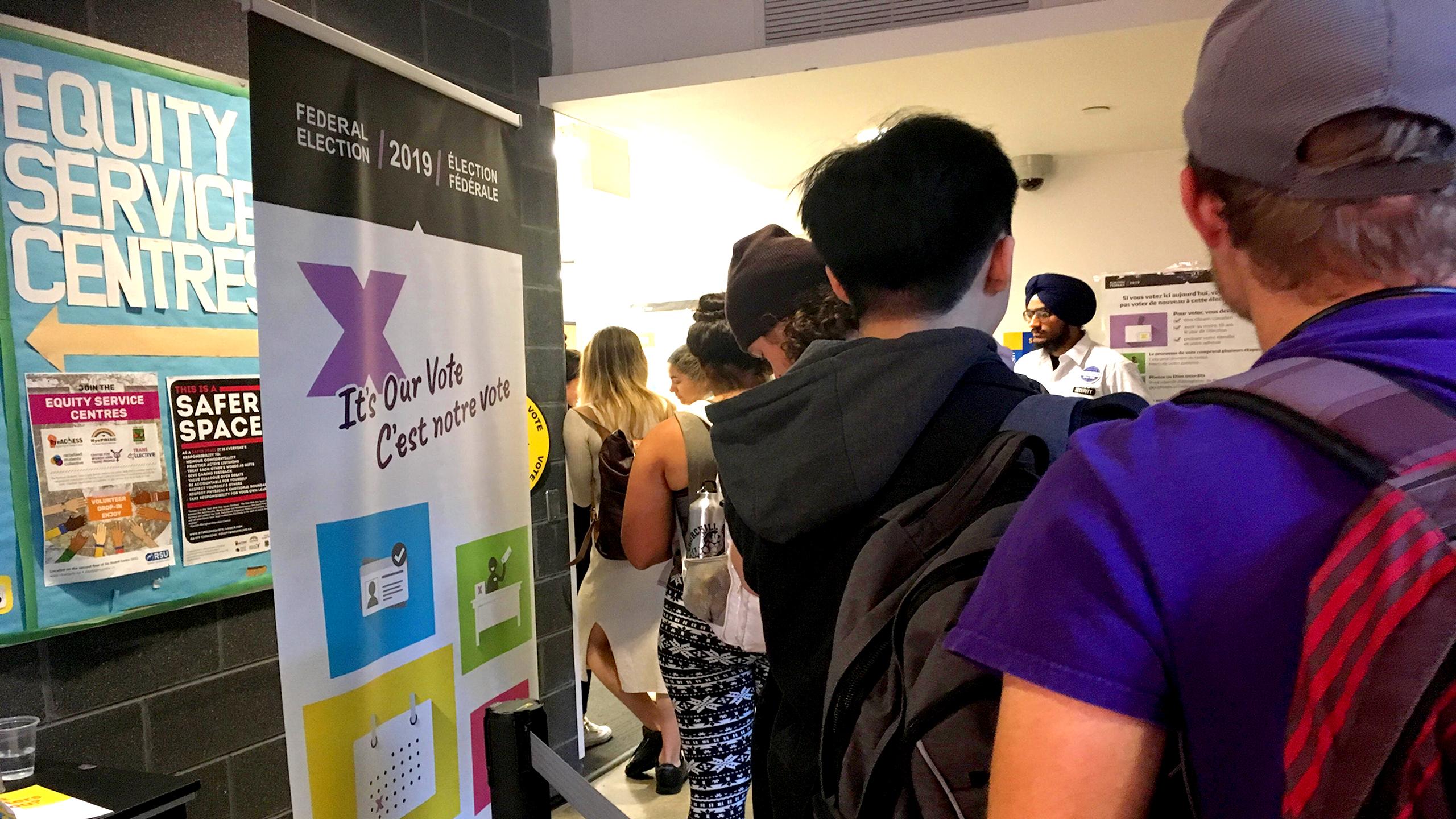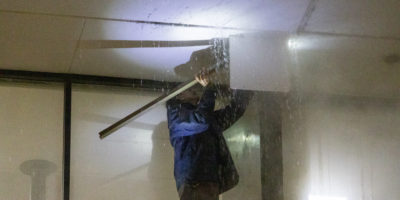By Mariam Nouser and Curtis Martin
A new campaign at Ryerson aims to double on-campus voter turnout, from just under 1,500 to 3,000 full-time students, for the upcoming federal election.
RyersonVotes, part of a campaign by Democratic Engagement Exchange at Ryerson, is a non-partisan group providing strategic advice to individuals, organizations and government agencies interested in increasing voting turnout.
Led by two Ryerson undergraduate students, Aysha Anwar and Taylor Deasley, the goal of the campaign is to hold 22 events across Ryerson’s campus to inform students about the voting process.
“I can relate to them in a sense by having the same problem of not knowing how to vote or who to vote for,” said Deasley in a press conference on Oct. 2.
RyersonVotes held pop-ups as a means for organizations to encourage voting and make first-time voters aware of the voting process. The group has held pop-ups across campus since late August and has trained over 20 student volunteers to run them.
According to Ryerson Today, the pop-ups include official Elections Canada ballot boxes and screens to further the impact of the simulation.
As for the impact of advance polling on campus, all students can vote regardless of their respective ridings. According to Deasley, having advanced polls open for extended hours allows access for students if they have classes on election day.
The official voting centre is located on the second floor of the Student Campus Centre (SCC) and simulation pop-ups are located in the Sheldon and Tracy Levy Student Learning Centre (SLC) and Rogers Communications Centre (RCC).
“It’s very important for us to engage our students in the discussion about the future of democracy,” said Ryerson president Mohamed Lachemi on the Democratic Engagement Exchange. “The more engagement we have from the students, the more politicians will be paying attention to the needs of the youth.”
According to Abacus Data, only 39 per cent of youth aged 18 to 24 voted in the 2011 election, with a likely increase by about 12 points in 2015.
From the youth that voted in 2015, 45 per cent of them voted for the Liberal Party, while 25 per cent voted for the New Democratic Party (NDP).
John Beebe, head of Democratic Engagement Exchange, emphasized the impact Ryerson students could have if they came out to vote.
“We have the numbers to show that Ryerson is a political force with the ability to make a difference,” he said during the press conference. “It helps us make sure that the issues that are important to us as [in the] Ryerson community are heard.”
While the campaign aims to get Ryerson students voting in the election on Oct. 21, Yasser Abady, a second-year computer science student, says he will not be voting. “I do not have any interest in politics,” he said.
Despite some reluctance, many students are adamant about voting this year.
“Ontario had an election and we ended up voting in a party that didn’t exactly do great things for us,” said Tanvir Chakkal, a third-year computer science student. “To ensure the same party doesn’t get voted into the federal election, I want to vote.”
Students can participate in advanced voting on campus on the second floor of the SCC until Oct. 9. The federal election is taking place on Oct. 21.












Leave a Reply